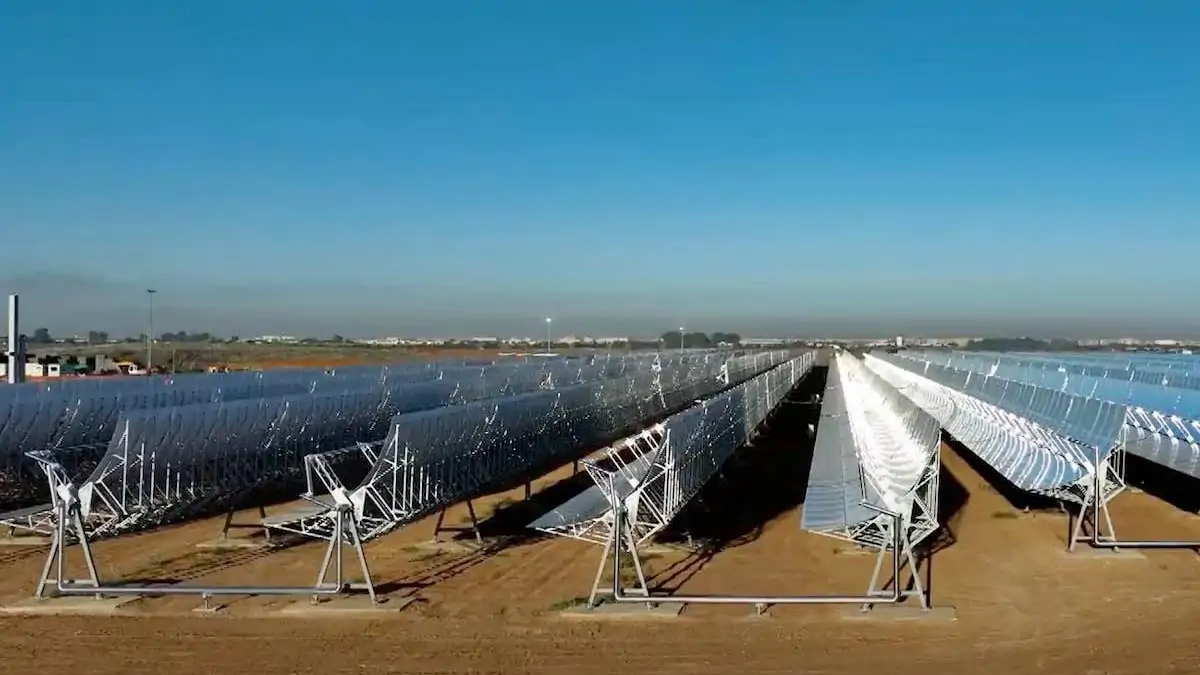

This solar thermal predesign tool will allow ENGIE business developers to make a preliminary technical and economic estimation to support business cases for their customers.
Solar thermal installations can indeed be used to heat water to temperatures up to 400°C, depending on the location and technology used. In the higher temperature ranges, it can provide the necessary heat for industrial processes such as distilling, nitrate melting, dyeing, compression and drying. A Lab Crigen study also demonstrated that solar thermal is economically competitive in countries like Spain and the South of France.
Such assistance was given for the 30.4 MWth installation at the Heineken plant in Sevilla, Spain, the largest of its kind in Europe, commissioned in September 2023.
The solar thermal plant built by ENGIE Spain at the Heineken production site in Sevilla is a breakthrough project. Made of parabolic trough collectors with a 43,000 m2 aperture area, the installation feeds high-pressurized water at a temperature of around 160°C to the brewery. Excess heat is stored in a 68.8 MWh heat storage, providing more than 50% of the process’ thermal needs and thus reducing the need for other heat sources.
Lab Crigen experts have studied the design of the installation, assisting ENGIE Spain in their discussions with the supplier.
Meanwhile, a solar thermal predesign tool called SHIP (Solar Heating for Industrial Process) is being developed by Lab Crigen’s Industry of the Future team. The tool is expected to be deployed in the Group early 2024. Expert Enrico Biagini anticipates the benefits: “This will allow ENGIE business developers to make a preliminary technical and economic estimation to support business cases for their customers.”